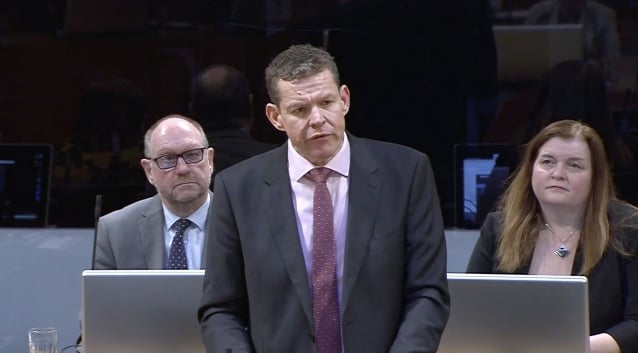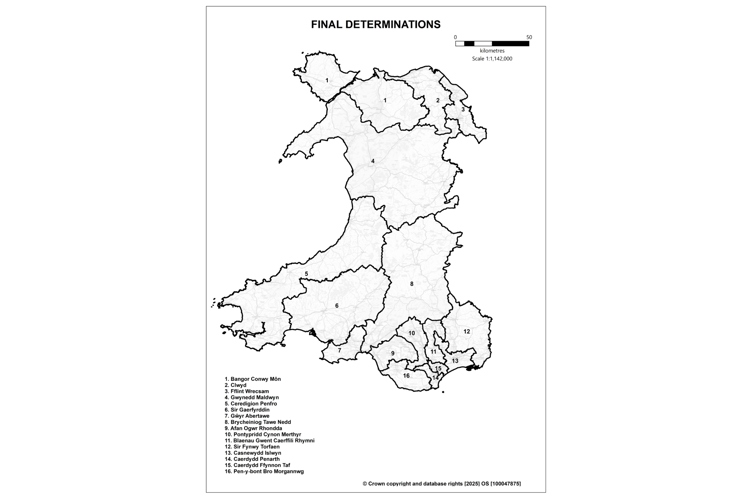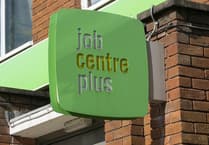If you’re already sick and tired of politics, you’d better take a chill pill. Over the coming 12 months, you’re going to be hearing a lot from our political parties and leaders, candidates and canvassers as they try to convince you they have the right personnel and policies to run Wales for the next four years.
When 7 May rolls around next year, the Welsh General Election will be underway, returning more members to an expanded Senedd using a new voting system and bigger constituencies. And already, 12 months out, the starting shots have been fired in what will be a long and bruising race.
For the past quarter century – as long as we have elected a Welsh parliament – Labour has been the party in power. But, according to a YouGov poll on behalf of ITV, Labour support in Wales has slumped to its lowest level since the start of devolution. And the same poll suggests both Plaid Cymru and Reform UK will battle to be the biggest party at the 2026 Senedd election.
The Barn Cymru poll, conducted by YouGov for ITV Cymru Wales and Cardiff University, reports Labour‘s predicted vote share – 18 per cent - would be their worst result since devolution. It shows a significant increase in support for Plaid, projected at 30 per cent.
Reform, which took control on of seven English local authorities returning more than 600 councillors and narrowly winning the Runcorn seat for Westminster by six votes over Labour, is surging in support with one voter in four in Wales telling pollsters it’s their choice to run the Senedd.
According to the poll, the Conservatives are on 13 per cent, the Liberal Democrats on 7, while Greens are on 5 per cent respectively.
Plaid Cymru - 30%
Reform UK - 25%
Labour - 18%
Conservatives - 13%
Liberal Democrats - 7%
Green - 5%
Other - 2%
Dr Jac Larner, from Cardiff University's Welsh Governance Centre, told ITV: "This poll represents a substantial shift from previous Welsh polls and as always carries the health warnings of a single poll.
"However, the results support a broader pattern emerging throughout the UK - both Labour and Conservative parties are experiencing substantial erosion of support, though flowing in different directions, resulting in a newly fragmented four-party political landscape in Wales."
"Modelling indicates Plaid Cymru would emerge as the largest party with approximately 35 seats, followed closely by Reform UK with 30 seats," Dr Larner said.
"If these polling figures were replicated in an actual election, Labour would secure 19 seats, while the Conservatives would hold nine seats and the Liberal Democrats three seats. However, it's important to note that 10 of these projected seats fall within a very narrow margin of error (less than 2 per cent), meaning even minor shifts in vote intention could produce a substantially different Senedd composition."
Dr Anwen Elias a Reader in Politics at Aberystwyth University's Department of International Politics, said: “This poll gives us a snapshot of what people in Wales think about political parties at the moment. But we’re still 12 months away from the election, and it’s difficult to know how the new electoral system will impact on parties’ electoral fortunes.
“There’s a lot that can happen between now and May 2026, this poll suggests that there’s a lot at stake for all parties and we’re likely to see election campaigns ramp up from now on.”
Tindle Newspapers put the poll results to our local Members of the Senedd for their take on the changing political landscape.
Mabon ap Gwynfor, Plaid Cymru MS for Dwyfor Meirionnydd, said: “After decades in power, Labour is out of energy and out of ideas. Instead of standing up to Keir Starmer’s agenda of welfare cuts and economic drift, they fall in line and fail to demand fairness for Wales. People across Wales are losing trust, not only in Labour’s record, but in its ability to deliver a better future for our nation

“They’ve delivered nothing for Wales. No HS2 funding, no Crown Estate powers, and no fair funding. Meanwhile, Reform and their campaign of division, fear, and blame, are being facilitated by Labour’s failure.
“ Plaid Cymru offers the only real alternative. Our focus is firmly on the future – health, prosperity, and a better Wales.’’
Montgomeryshire MS, Russell George, announced in early May he would not be standing for re-election to clear his name in a betting scandal over the timing of the 2024 Westminster election. The Conservative, who is currently sitting as an independent, said: ‘’The latest polling highlights some interesting shifts, but it’s important to remember it’s just one snapshot, and with a year to go, much can change. Twelve months is a long time in politics, and the landscape in both Wales and the wider UK will continue to evolve.
‘’People want to be heard, whether that’s on improving education outcomes, tackling NHS waiting times, or easing the cost of living for working families by cutting their taxes.
‘’As we move closer to the election, and all parties come under greater scrutiny with manifestos in full view, we’ll start to get a clearer picture of where things really stand.”
Elin Jones, MS for Ceredigion and Presiding Officer in the Senedd said: “It’s a very volatile time in world and Welsh politics and long-established voting patterns are fragmenting.
“In Wales, especially west Wales, then both Welsh and UK Governments are taking decisions that are hitting our rural communities hard – from winter fuel payments, NHS funding, rail investment to farm inheritance tax.
“As a result, Labour is in freefall and people are looking for an alternative Welsh Government next May. Plaid Cymru is the only credible alternative to Labour for Government in Wales.”
Paul Davies, Welsh Conservative Senedd Member for Preseli Pembrokeshire: “The results of the recent ITV poll make for interesting reading, but with a year to go until the Senedd election, a lot can change.”
“I’ve been out campaigning on the doorsteps across Pembrokeshire and it’s been made overwhelmingly clear to me that people have had enough of Labour and want a change of government. By creating more politicians and delivering 20mph speed limits, Labour has proved that it just doesn’t understand the priorities of the people of Wales. Sadly, the nationalists have continued to prop up Labour and help ensure these policies have been able to go ahead, showing that a vote for Plaid Cymru is just another vote for Labour.”
“As for Baroness Morgan’s ‘new red Welsh way’, that means absolutely nothing. Welsh Labour failed to stand up for Welsh pensioners when the Winter fuel payments were cut, failed to stand up for Welsh farmers when inheritance tax changes were announced, and failed to stand up for Welsh businesses when national insurance contributions were increased,” he said.
Indeed, as many of the MSs point out, there’s a growing rift between Labour in Wales and Labour in Westminster.
With a year to the Senedd election, First Minister Eluned Morgan has laid out what she terms a “red Welsh way” to try and put distinct political differences between Cardiff Bay and Sir Keir Starmer’s Government in Westminster.
Labour’s leader in Wales insists she “will not stay silent” if the Westminster leadership make “decisions that we think will harm Welsh communities”
“A new voting system. A new era. A government that’s already delivered for 27 years. Now, with the rise of Reform and the risks of a divided left vote, the future of Wales is at stake,” she said as the party looks to the challenge from Nigel Farage’s Reform UK, one year out from the vote.
The intervention from Labour’s most senior figure in Wales comes after a bruising set of local election results in England for Sir Keir, which saw the party lose the only council it was defending to Reform, plus that Runcorn by-election.
“I will not hesitate to challenge from within, even when it means shaking things up and disrupting the comfortable,” Baroness Morgan said.
In recent weeks, Baroness Morgan has called for Wales to receive a “significant share” of a Government clean steel fund in the wake of ministers intervening in Scunthorpe, telling Senedd members that “we do not want to see this funding going on supporting the Scunthorpe plant at the expense of the situation in Welsh steel”.
The details of The Barn Cymru poll shows why Baroness Morgan is so keen to put space between her Welsh party and its Westminster colleagues. It asked voters how well or badly did they think Keir Starmer is doing as the prime minister? More than 60 per cent responded fairly or very badly, and just a little more than a quarter saying he was doing very or fairly well.

The poll revealed just 23 per cent thing Baroness Morgan is doing a good job as first minister. Another 43 per cent said she is performing badly, while 34 per cent said they didn’t know either way.
The leader of Plaid Cymru, Rhun ap Iowerth says that there is no chance his party would consider a coalition or other arrangement with Reform.
“I understand why people are protesting against the merry-go-round of red and blue politics, I'm frustrated about that too...
"We have a vision though that is based on what is right for Wales, something Reform don't have."
As things stand now, neither Reform nor Plaid is expected to have enough votes for an outright majority.
“We have a Labour UK Government that came in with a whimper and clearly don’t care at all about Wales,” the Plaid leader told ITV. “We have a Labour government in Wales, who’ve shown week after week that they are not interested in standing up for Wales.
“They just want to keep things steady and not rock the boat for themselves within the Labour Party.
“So yes, people are fed up, and of course are still fed up after 14 years of destructive Conservative government.
“But it’s not just about that, it’s about us putting our house in order, making sure that there’s a clear policy agenda.”
Come 7 May when Wales does go to the polls again, there will be major changes, from the number of Senedd Members, the constituencies they represent, and how votes will be cast.
And from next year, a Senedd election will take place every four years instead of five, and voters will be electing 96 MSs, up from the current 60. That current total has been in place at Cardiff Bay since the creation of what was then called the National Assembly for Wales in 1999.
More than quarter of a century later, the powers devolved to the Senedd and Welsh Government have grown and its responsibilities look very different. It has direct law-making powers and some tax powers, including over a share of income tax.
Supporters of increasing the number of MSs argued that more politicians were needed to scrutinise decisions and actions, while opponents have objected against the cost.
Estimates have put the cost of 36 more MSs to as much as £17.8m extra a year, on top of the Senedd's existing budget of £67m.
Wales will be divided into 16 constituencies, replacing the 40 it has now. Six MSs will be elected in each of these new constituencies, meaning every voter in Wales will have six MSs representing them.
The new constituencies were created by pairing the 32 UK parliamentary constituencies, which were new for the 2024 General Election, into 16 new Senedd constituencies, with the final boundaries being published in March this year.
If you’re aged 16 or 17, you were able to vote in the last Senedd election, but that was during the Covid pandemic so this is being seen as the first big election in which young people who are still at school or in training will be able to have a say.
A new voting system will come into place for next year's Senedd election.
Every registered voter will have one vote to choose one party.
There will be no voting for a single candidate like we do for UK General Elections, and no mix of candidate and party as we have for all the previous Welsh elections. Instead we’ll be asked to choose a sole party, unless you're voting for an independent candidate.
In terms of the number of votes, the previous system where voters had two votes to cast - the first for constituency representatives, and the second for regional MSs - will be no more.
The way votes are calculated is also changing.
Previously, 40 of the 60 MSs have been elected by the traditional Westminster-style first-past-the-post system, with the other 20 seats representing larger regions. From 2026, MS seats will be allocated using a process known as the D'hondt method, which is said to better reflect the vote share.
This is a long-established way of allocating seats based on the vote share. The party with the most votes gets one seat and a calculation is carried out to see which party gets the next seat and so on until all the seats are filled.
The 16 constituencies proposed by the commission are: Bangor Conwy Môn; Clwyd; Fflint Wrecsam; Gwynedd Maldwyn; Ceredigion Penfro; Sir Gaerfyrddin; Gŵyr Abertawe; Brycheiniog Tawe Need; Afan Ogwr Rhondda; Pontypridd Cynon Merthyr; Blaenau Gwent Caerffili Rhymni; Sir Fynwy Torfaen; Casnewydd Islwyn; Caerdydd Penarth; Caerdydd Ffynnon Taf and Pen-y-bont Bro Morgannwg.





Comments
This article has no comments yet. Be the first to leave a comment.